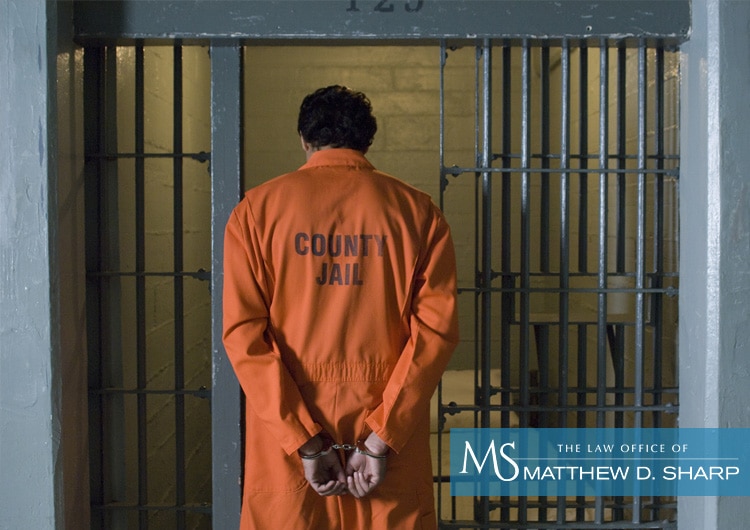Exploring Why Bail Bonds Are Necessary in the Lawful Refine
Bail bonds serve a crucial feature within the lawful system, assisting in the delicate balance between private legal rights and social safety and security. Understanding the diverse function of bail bonds welcomes a more detailed exam of their effect on both defendants and the more comprehensive justice system.
Comprehending Bail Bonds
In the legal process, bail bonds work as a critical system that permits people billed with crimes to secure their release from safekeeping while waiting for trial. A bail bond is essentially a financial assurance given by a 3rd party, generally a bail bondsman, which makes certain that the charged will show up in court at the designated times. When a court establishes a bail quantity, it reflects the severity of the fees and the perceived flight threat of the offender.
Individuals who can not manage the complete bail amount may transform to bondsman, who bill a non-refundable fee, generally around 10% of the complete bail. This cost makes up the bail bondsman for assuming the threat of the defendant possibly stopping working to show up in court. If the accused does not adhere to court appearances, the bail bondsman might employ various approaches to situate and capture the person.
Bail bonds play a crucial function in the criminal justice system by stabilizing the civil liberties of the accused with the demand to make certain public safety and court honesty. Understanding the mechanics of bail bonds is important for any person navigating the intricacies of the lawful landscape.

The Role of Bail in Justice
Bail works as an essential column within the justice system, stabilizing the presumption of virtue with the demand to guarantee court participation. bail bondsman Vista. By allowing defendants to remain totally free while awaiting test, bail acknowledges that individuals are innocent till proven guilty. This important principle promotes justness and justice, as apprehension before trial can intensify social inequalities and interrupt lives

In addition, the bail process permits courts to examine the conditions of each case, consisting of the nature of the fees, the offender's background, and community ties. This personalized assessment makes certain that bail choices are not entirely corrective but are rather reflective of the concepts of justice and equity, therefore enhancing the integrity of the legal system.
Benefits for Offenders and Households
The benefits of bail expand beyond the courtroom, dramatically impacting defendants and their families. By protecting bail, accuseds are paid for the opportunity to remain in their neighborhoods while awaiting trial, which can substantially ease the psychological and financial stress connected with imprisonment. This flexibility enables people to keep employment, support their households, and fulfill vital duties, ultimately adding to their general health.
For family members, the effects of protecting bail are profound. It enables them to stay together during a challenging time, promoting an assistance system that is vital for emotional durability. Families can take part in the legal process better, as they can seek advice from attorneys, gather evidence, and prepare for court hearings without the included burden of splitting up.
Furthermore, having a liked one launched on bail can mitigate the monetary strain that usually comes with legal battles. Family members can assign resources toward legal fees and other requirements rather than sustaining costs related to incarceration. Generally, the availability of bail bonds functions as a vital lifeline for accuseds and their family members, promoting stability and unity during a tumultuous duration in their lives.
Effect On Court Performance
By promoting the release of offenders prior to test, bail bonds dramatically improve court performance. When offenders are able to protect bail, they are less most likely to remain incarcerated, which consequently lowers congestion in prisons and detention centers. This alleviation of congestion allows police and court workers to allocate resources better, concentrating on energetic instances you can try these out as opposed to handling a backlog triggered by pretrial detentions.
In addition, when accuseds are launched on bail, they can better prepare for their legal proceedings. This prep work frequently results in a lot more enlightened conversations between the defendant and their lawful advise, causing a much more structured judicial procedure. As defendants are most likely to go to court hearings when they are not confined, the rate of missed court days lowers, adding to a much more organized court schedule.
Additionally, the timely resolution of cases is promoted as defendants are encouraged to take part in their tests actively. This not just expedites the legal process but additionally helps maintain public confidence in the justice system. Ultimately, making use of bail bonds serves a dual function: making sure that defendants can get involved in their protection while concurrently advertising a more efficient judicial framework.
Alternatives to Bail Bonds
Various alternatives to standard bail bonds exist within the legal framework, each offering one-of-a-kind mechanisms for pretrial launch. One such alternative is release on recognizance (ROR), where accuseds pledge to show up in court without the need for financial bail. This alternative is frequently readily available to people considered low-risk, promoting justness in the justice system.
One more option is the usage of supervised release programs, which involve keeping track of offenders through check-ins with a pretrial solutions police officer. These programs may include problems such as time limits or electronic surveillance, guaranteeing compliance and minimizing trip risk.
Additionally, some jurisdictions carry out diversion programs that focus on rehabilitation instead of corrective steps. Offenders might join social work or therapy as a problem of their launch, attending to underlying issues while decreasing incarceration.
Last but not least, bail funds established by not-for-profit organizations supply financial assistance to low-income offenders, allowing them to safeguard release without the concern of high costs connected with standard bail bonds. These choices highlight the value of balancing public safety and security with the civil liberties of the implicated, ultimately adding to a much more fair lawful procedure.

Conclusion
Bail bonds work find here as a fundamental component of the lawful process, embodying the principle of assumption of virtue while making sure offenders preserve their liberty before test. By how bonds work incentivizing court attendance and minimizing jail overcrowding, bail bonds help with a lot more effective case prep work. Their function in enhancing court performance highlights their value in preserving public self-confidence in the justice system. Inevitably, bail bonds contribute substantially to a well balanced technique between the rights of the accused and public safety and security.